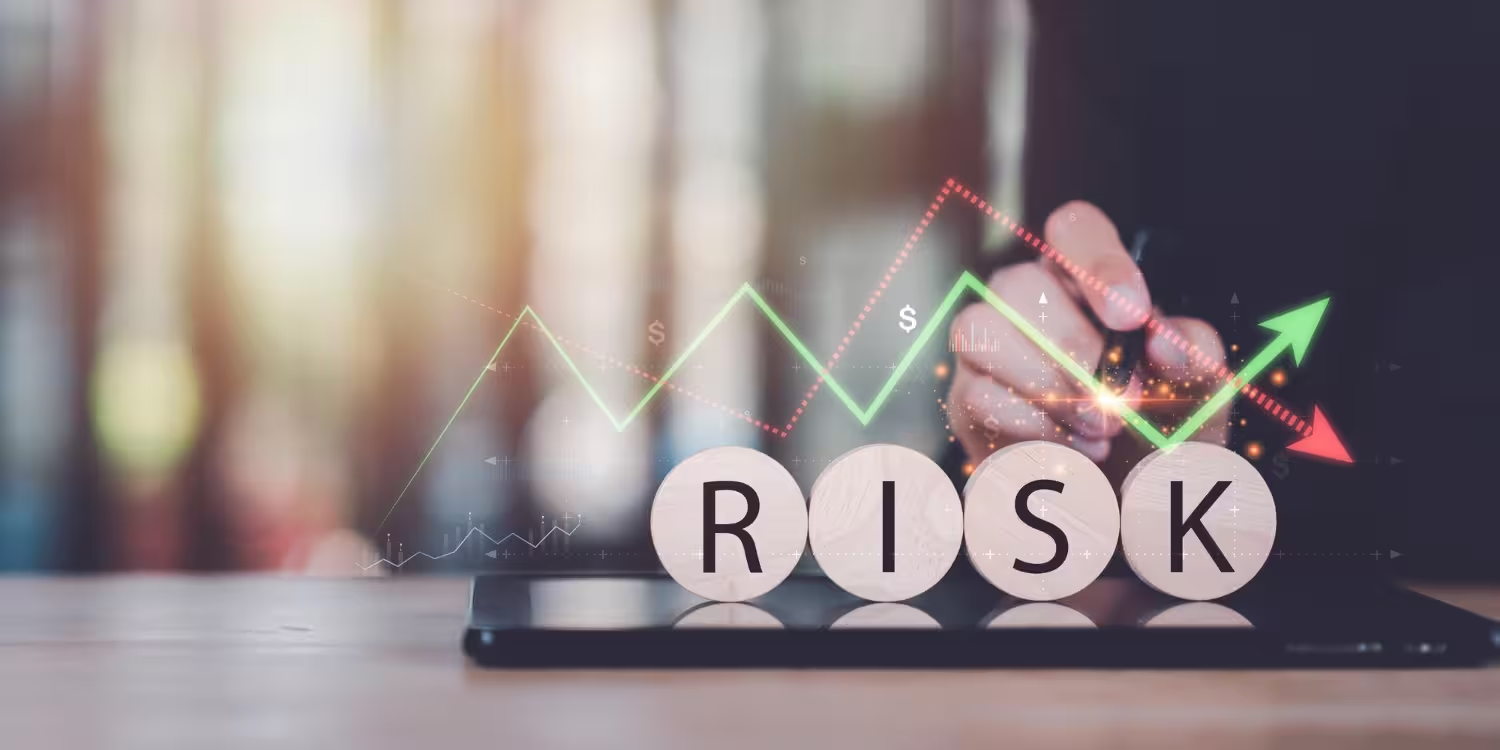9 Examples of Squeaky Clean Desk Policy Posters
As a HIPAA-compliant organization, you know the importance of a clean desk policy. But it’s not uncommon for your employees to forget or not prioritize this rule. Here are nine clean desk policy posters for inspiration. We even included four that you can use yourself.
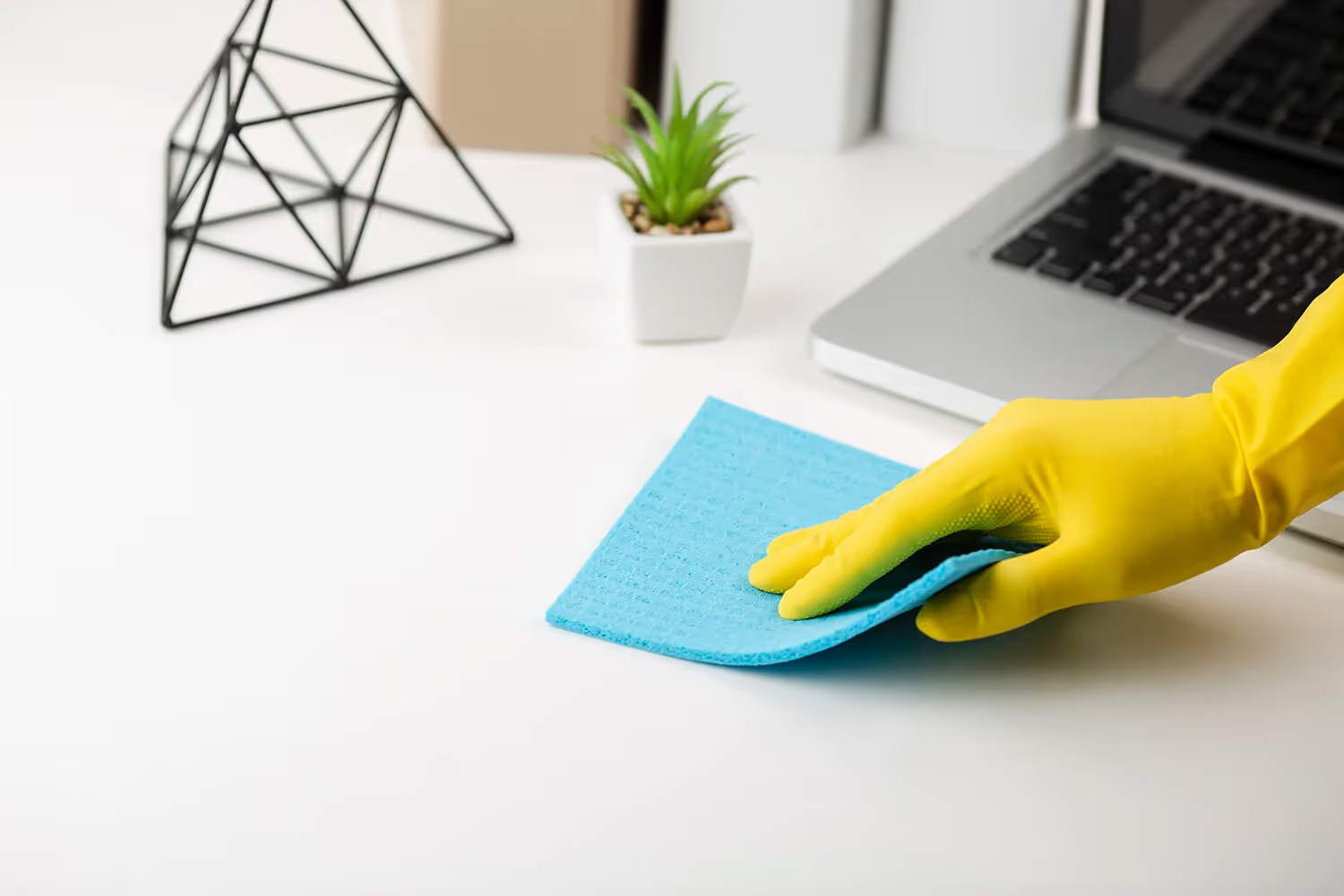
As a HIPAA-compliant organization, you know the importance of a clean desk policy. It requires staff to keep sensitive information out of eyesight so unauthorized people don’t see it.
These policies also contribute to the overall environment of your office. Cleanliness impacts the physical and mental health, appearances, and costs of your business. With all of the benefits of this policy, your staff must follow it.
But it’s not uncommon for them to forget or not prioritize these rules. They already have a lot going on, and it won’t be on their radar if you only bring it up once a year in training.
This is why it’s necessary to always promote the policy. You want staff to see why they should follow it and take it seriously. One way to do this is by making clean desk policy posters. While this is a passive reminder, being able to visualize the effects of decluttering encourages people to do it.
But just printing out a list of all the rules and hanging it up won’t be enough to grab attention.
Instead, you can focus on the key reasons why it’s necessary to follow. Here are nine clean desk policy posters for inspiration. We even included four that you can use yourself.
A Simple Reminder
It doesn’t get easier than this.
Sometimes, your staff only needs a reminder to clean off their desk. At the end of a long day or week, they probably aren’t thinking about cleaning off their desk before heading home.
But it’s so important that they do. A messy desk is distracting, can cause stress and less productivity, and it can even lead to security risks. Especially in a HIPAA-compliant environment, no private documents can get left out.
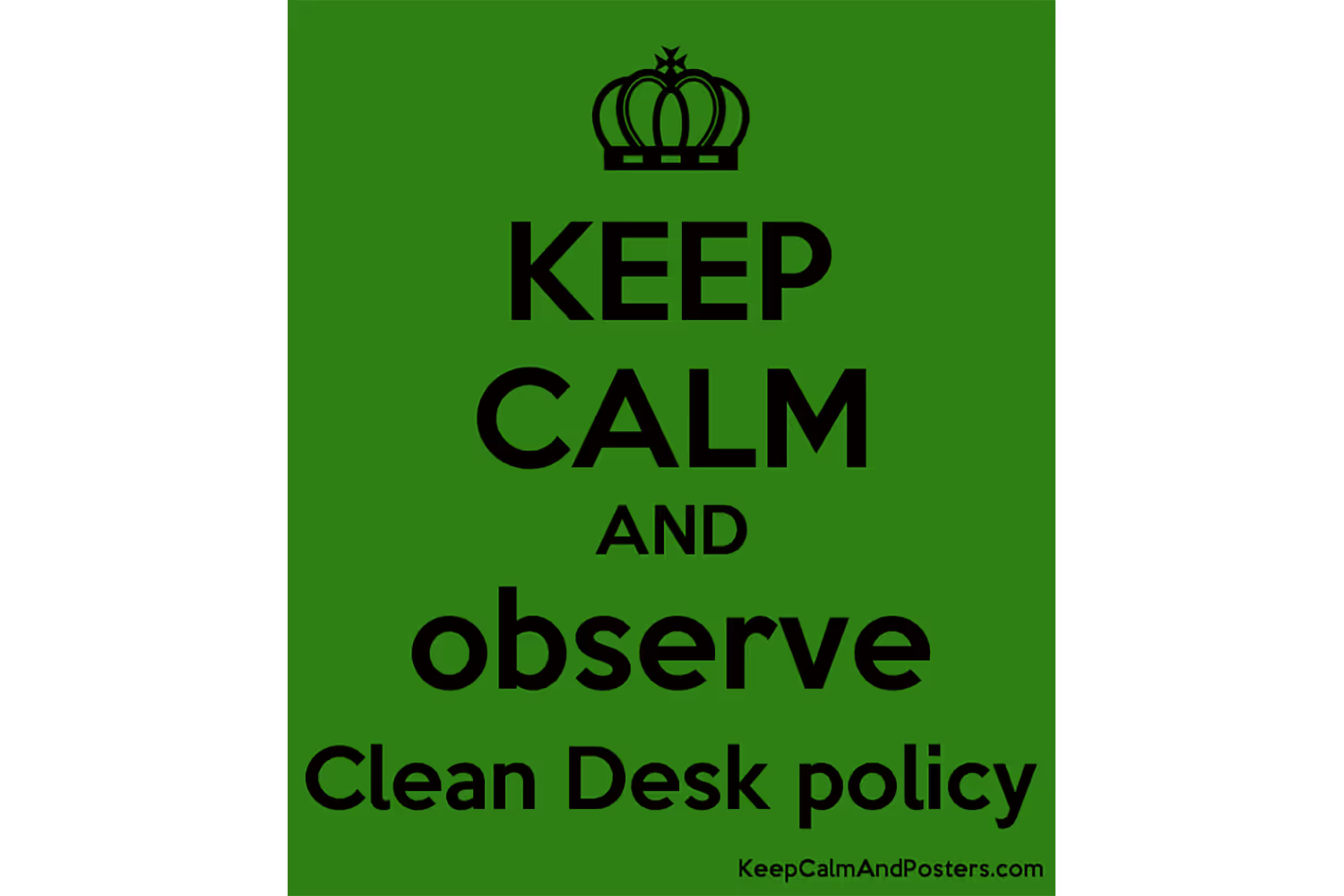
Using a simple reminder encourages them to get into the habit of clearing their desks. This prevents the issues that I just mentioned from happening. Plus if they keep up with this task, they don’t need to put in as much effort each time they do it.
Tips for Cleaning Your Desk
So what all goes into cleaning a desk?
Depending on the nature of your company, it might entail more effort. For example, if you still use paper records, people need to lock up private documents and keep papers organized. But if everything is online, it’s more simple with just locking screens.
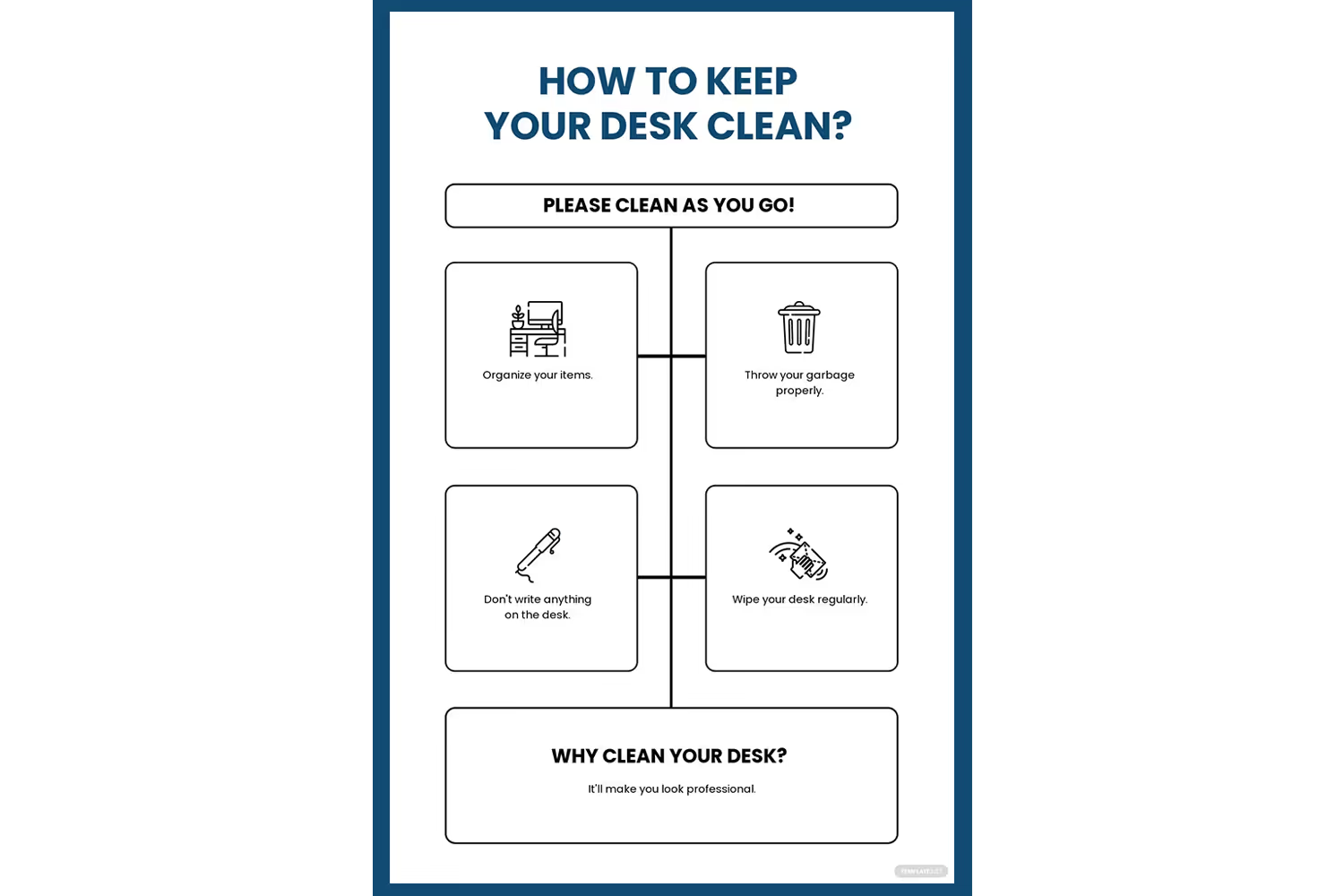
In your clean desk policy posters, summarize each part of the policy so employees know all the steps to take. This prevents them from forgetting a key part of protecting what’s on their desk and it encourages them to stay organized.
Appealing Workspace
Doesn’t a clean space look so much better than a messy one? It’s much more professional to keep your area tidy. This shows that you’re organized and ready to work.
Around half of Americans say they’re “appalled” by how messy their coworkers’ space is, and most attribute it to laziness. This gives people bad reputations in the workplace for something that has an easy fix.

Employers also prefer their staff to keep the office looking tidy because messes irritate them.
According to 54% of managers, having a messy or disorganized workspace is the most annoying thing about an employee’s workspace. Although 10% say that they find it distracting if it looks too bare, so there needs to be some sort of balance.
Including in a poster what you find acceptable and not acceptable makes them aware of how tidy their area should be. They’ll be more likely to follow the policy if they know it bothers management. After all, no one wants their boss thinking that they’re lazy and disorganized for their position.
Boosting Productivity
We know that clean desks are important for aesthetics in the office. They don’t only have visual benefits but also psychological ones which boost productivity in the workplace.
When we have a clear space to work, we can get more work done. We aren’t overwhelmed by the number of items around us and we’re less likely to get distracted. There’s also less time wasted on searching for items that seem to get lost in piles of clutter.
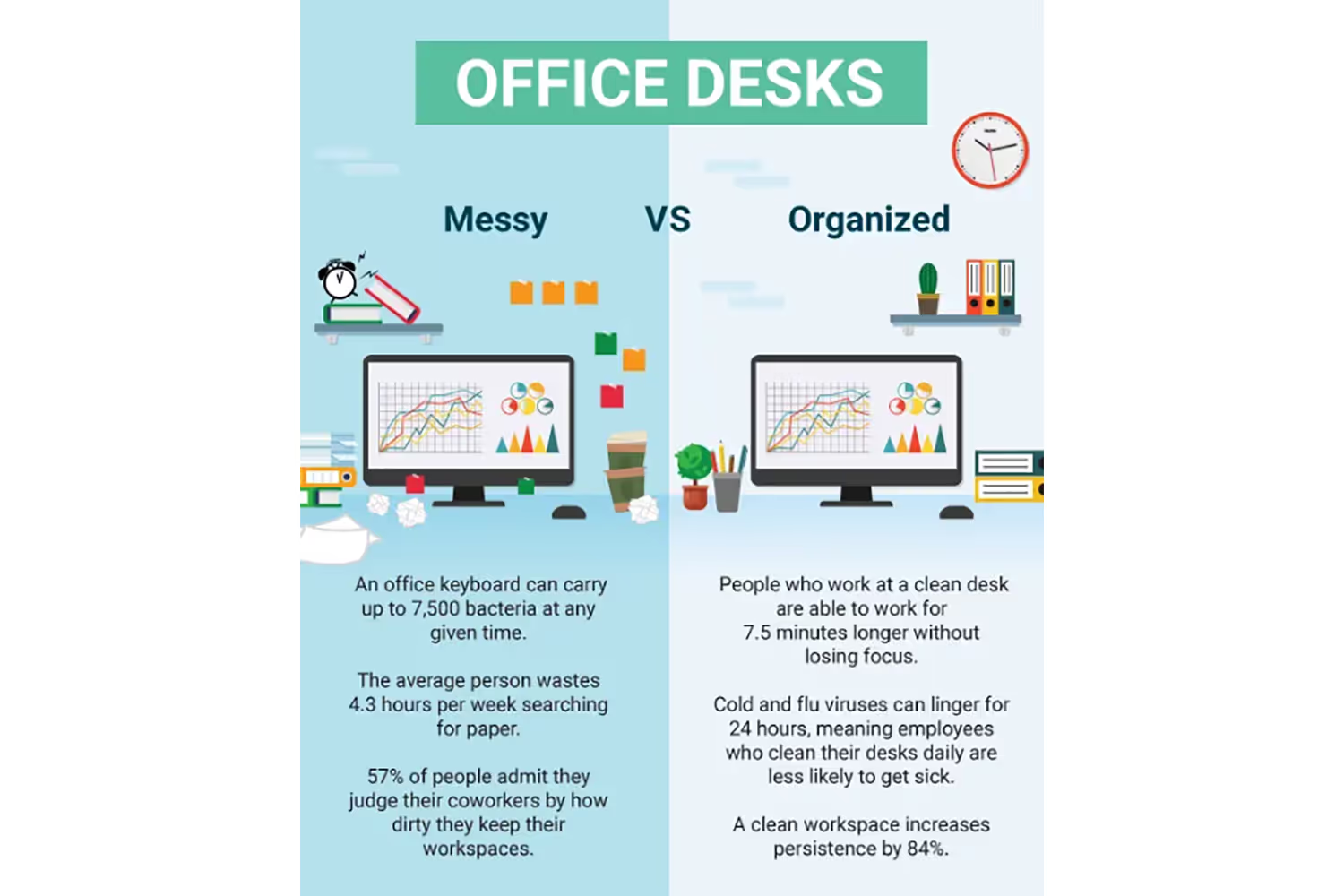
The average office employee spends 1.5 hours per day looking for something they need. 91% of people who feel disorganized at work said they would be more efficient if their space was better organized. And 28% said this would save over an hour a day.
When their spaces have clutter, they aren’t as efficient because they lose focus. Workers who have a clean desk can work for an extra 7.5 minutes without getting distracted. This means better professional results from your staff.
Some people may falsely think that their environment doesn’t impact their productivity. But acknowledging these statistics on a poster can reinforce the importance of keeping tidy areas while at the office.
Free of Germs
As shown in the last clean desk policy poster, it’s also important to prioritize sanitation. You don’t want to be dealing with sick team members who need to miss work because of an unsanitary work environment.
But germs are likely to live on these surfaces. From constantly touching your desk and setting unclean items on it, bacteria are likely to build up throughout the day.
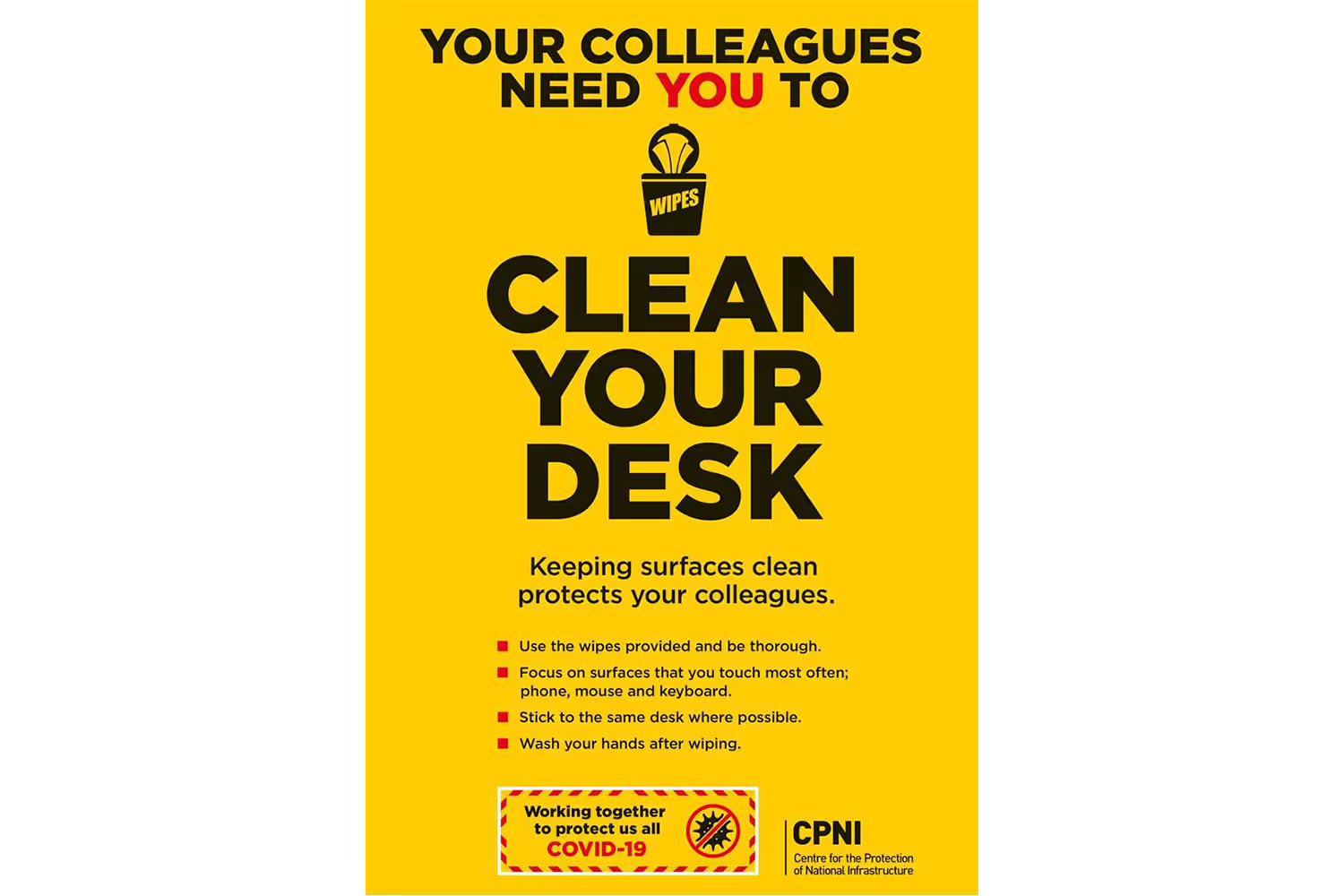
One study found that the average desk has about 400 times more bacteria than an average toilet seat. Shocking, right? We don’t think about how gross our areas are at the office.
The researchers used two groups to study the effect of sanitizing work surfaces. One used disinfecting wipes on their desks, phones, and computers while the other group didn’t. In just two days, the group that used wipes had a 99.9% reduction in bacteria levels.
Because of this, decluttering isn’t the only thing you need to encourage in these policy posters. Also, remind people to wipe down frequently touched surfaces so that they don’t pick up or spread germs that will make them sick.
Subconsciously Boosting Compliance
Everyone in a HIPAA-compliant environment knows the importance of keeping information secure. But humans are prone to making mistakes, such as leaving out a private document or forgetting to lock their computer when they walk away.
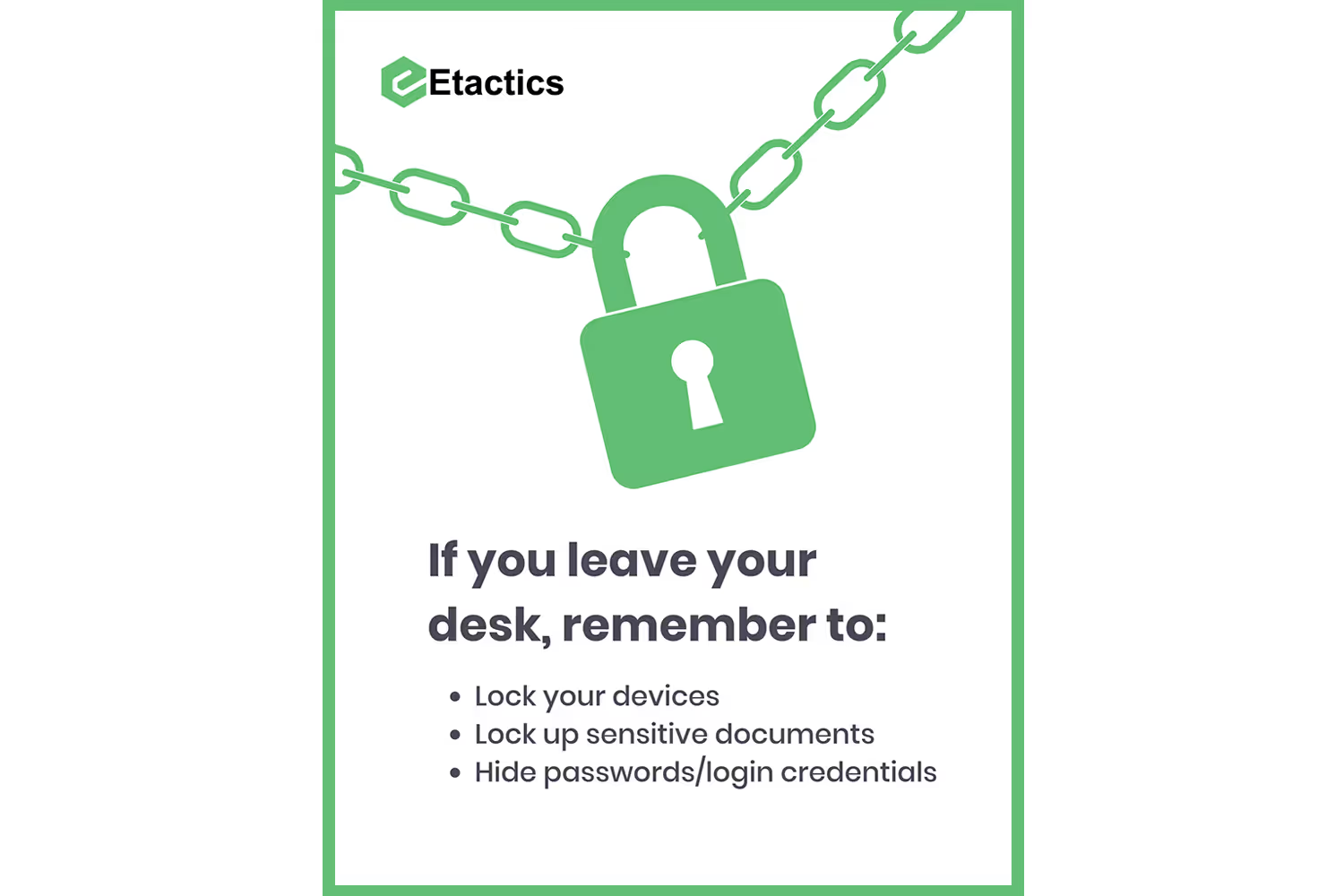
Some of these necessary policies slip someone’s mind when they have so much going on at work. And it’s not uncommon for them to forget HIPAA compliance long after training. But they must keep on their list of priorities.
This is why it’s useful to have a poster including each step to take to remain compliant. Some of these include:
- Lock computers when you step away
- Lock up paper documents with private information
- Do not leave passwords written on paper out in the open
- Shred outdated documents with sensitive information
Deterrent for Prying Eyes
This visually shows why it’s important to follow compliance rules when keeping workspaces cleared. No one wants to think that a coworker might invade their personal space.
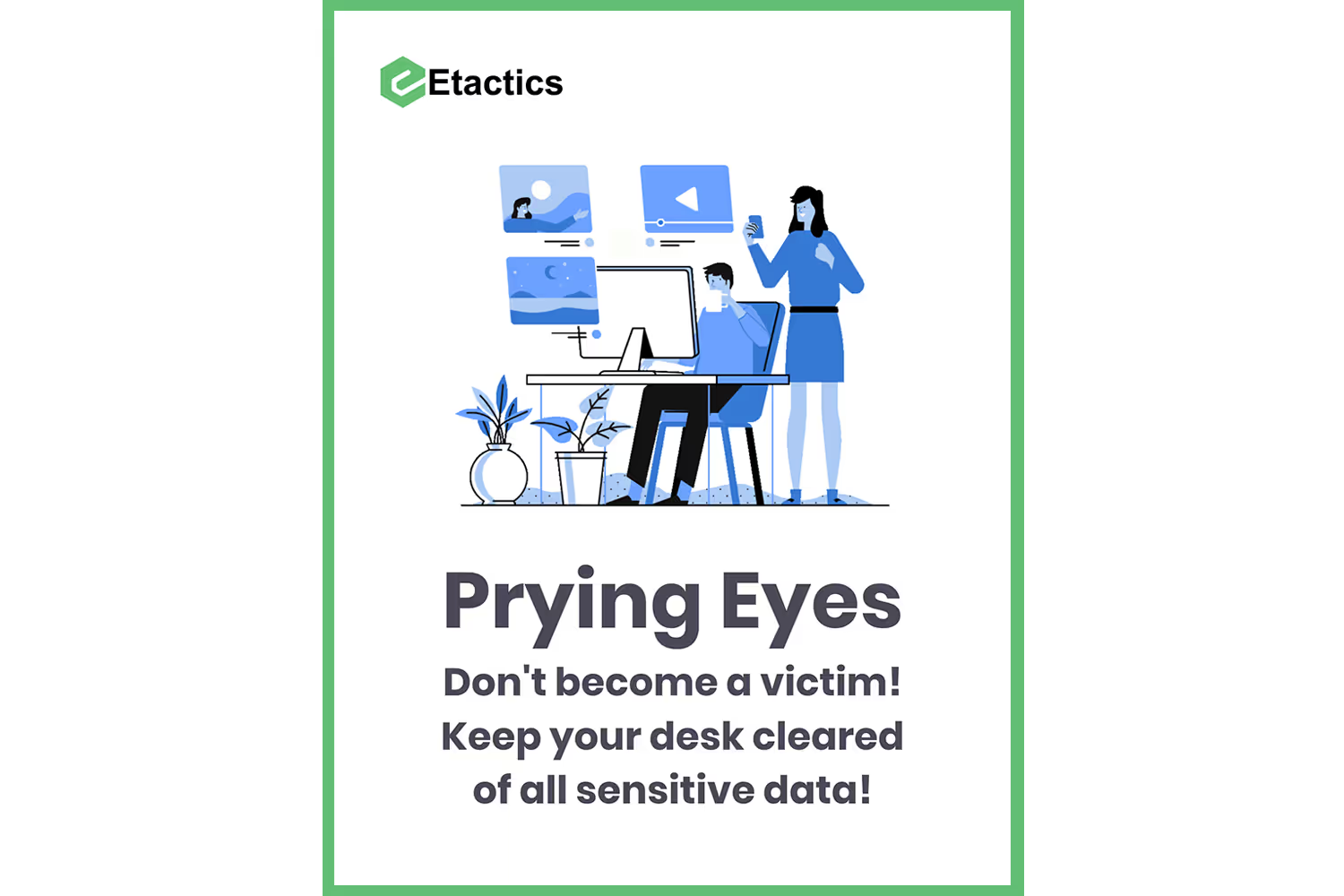
But the reality is that people can be nosy. It isn’t always intentional or malicious. If a coworker comes to talk to you, their eyes could wander to something on their desk. And if this is sensitive information, then you didn’t properly follow your policy.
Reminding people of this real possibility also reminds them why they need to take the policy seriously. It just takes one unauthorized person to see something they shouldn’t.
Inspire Going Green
This isn’t as likely of a reason for people to prioritize keeping their area clutter-free. But when people need to file away more papers or keep them out of sight, they’ll have less of a reason to print out more.
If they need to keep their workspaces tidy and free of papers, it’s easier to just use notes and information electronically. There’s no sense printing out a bunch of papers if they need to hide them away every day.

Chances are they’ll forget about them, or it’ll be a hassle to find them again once they store them away. According to the Small Business Administration, 80% of the papers we file we never refer to again.
This is a major waste to have so much paper that never gets used again. Encouraging people to go green helps them follow the policy without needing to do extra cleaning. If you’re actively promoting a paperless environment, they’ll naturally have less clutter. It also saves your organization from unnecessary paper and printing costs.
Cause Less Stress
I already mentioned how less clutter has psychological benefits like boosting productivity. It means fewer distractions, but it also means less stress that could get in the way of our job.
Studies show that people who work with clutter tend to suffer from unrecognized stress and feel overwhelmed. This creates issues with focus, quality of sleep, and eating habits. It also impacts emotions that affect how people interact with others. People who have messy spaces seem less conscientious, less agreeable, and more neurotic.
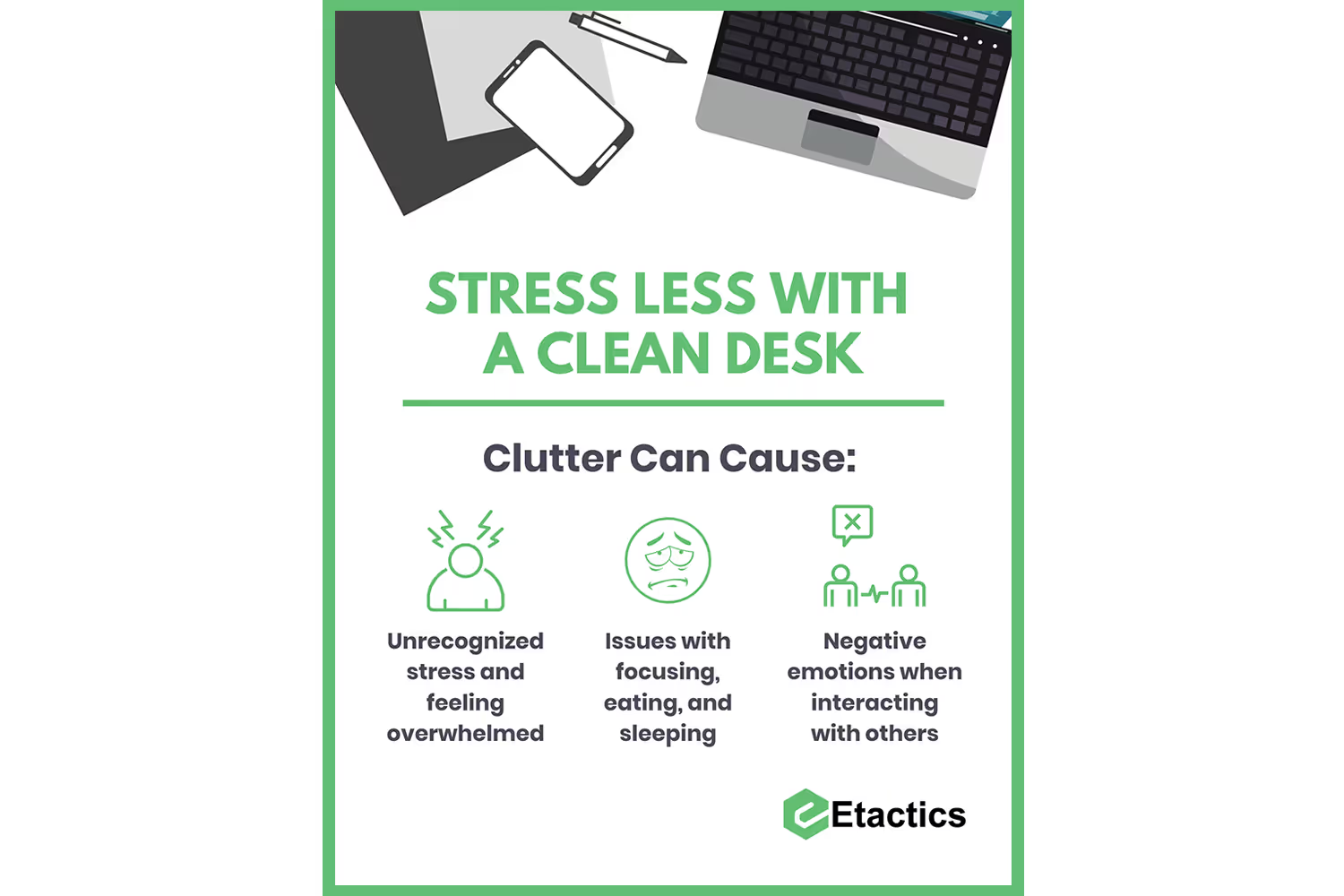
These mental health impacts cost businesses up to $190 billion each year in healthcare expenses. Even worse, workplace stress causes 120,000 annual deaths.
While people may feel overwhelmed at work, they might not realize that clutter is contributing to it. Using posters to let them know that there’s a simple fix for this will encourage them to follow the policy. If nothing else has worked so far, this will help since no one wants their mental health to suffer.
Conclusion
You know why it’s important to have a clean desk policy. If you don’t already have one, you’re thinking about it now.
But you don’t want this to just be another simple training lesson that staff will likely forget. There are so many factors that rely on them taking this policy seriously. Instead of only sending out your policy information once a year, you need to get more creative.
Using posters that show the importance encourages people to follow it and reminds them that this policy even exists. When they see the different reasons for why it’s necessary and how it can impact them, they’ll have more motivation to clear their desks.
Emphasize your product's unique features or benefits to differentiate it from competitors
In nec dictum adipiscing pharetra enim etiam scelerisque dolor purus ipsum egestas cursus vulputate arcu egestas ut eu sed mollis consectetur mattis pharetra curabitur et maecenas in mattis fames consectetur ipsum quis risus mauris aliquam ornare nisl purus at ipsum nulla accumsan consectetur vestibulum suspendisse aliquam condimentum scelerisque lacinia pellentesque vestibulum condimentum turpis ligula pharetra dictum sapien facilisis sapien at sagittis et cursus congue.
- Pharetra curabitur et maecenas in mattis fames consectetur ipsum quis risus.
- Justo urna nisi auctor consequat consectetur dolor lectus blandit.
- Eget egestas volutpat lacinia vestibulum vitae mattis hendrerit.
- Ornare elit odio tellus orci bibendum dictum id sem congue enim amet diam.
Incorporate statistics or specific numbers to highlight the effectiveness or popularity of your offering
Convallis pellentesque ullamcorper sapien sed tristique fermentum proin amet quam tincidunt feugiat vitae neque quisque odio ut pellentesque ac mauris eget lectus. Pretium arcu turpis lacus sapien sit at eu sapien duis magna nunc nibh nam non ut nibh ultrices ultrices elementum egestas enim nisl sed cursus pellentesque sit dignissim enim euismod sit et convallis sed pelis viverra quam at nisl sit pharetra enim nisl nec vestibulum posuere in volutpat sed blandit neque risus.

Use time-sensitive language to encourage immediate action, such as "Limited Time Offer
Feugiat vitae neque quisque odio ut pellentesque ac mauris eget lectus. Pretium arcu turpis lacus sapien sit at eu sapien duis magna nunc nibh nam non ut nibh ultrices ultrices elementum egestas enim nisl sed cursus pellentesque sit dignissim enim euismod sit et convallis sed pelis viverra quam at nisl sit pharetra enim nisl nec vestibulum posuere in volutpat sed blandit neque risus.
- Pharetra curabitur et maecenas in mattis fames consectetur ipsum quis risus.
- Justo urna nisi auctor consequat consectetur dolor lectus blandit.
- Eget egestas volutpat lacinia vestibulum vitae mattis hendrerit.
- Ornare elit odio tellus orci bibendum dictum id sem congue enim amet diam.
Address customer pain points directly by showing how your product solves their problems
Feugiat vitae neque quisque odio ut pellentesque ac mauris eget lectus. Pretium arcu turpis lacus sapien sit at eu sapien duis magna nunc nibh nam non ut nibh ultrices ultrices elementum egestas enim nisl sed cursus pellentesque sit dignissim enim euismod sit et convallis sed pelis viverra quam at nisl sit pharetra enim nisl nec vestibulum posuere in volutpat sed blandit neque risus.
Vel etiam vel amet aenean eget in habitasse nunc duis tellus sem turpis risus aliquam ac volutpat tellus eu faucibus ullamcorper.
Tailor titles to your ideal customer segment using phrases like "Designed for Busy Professionals
Sed pretium id nibh id sit felis vitae volutpat volutpat adipiscing at sodales neque lectus mi phasellus commodo at elit suspendisse ornare faucibus lectus purus viverra in nec aliquet commodo et sed sed nisi tempor mi pellentesque arcu viverra pretium duis enim vulputate dignissim etiam ultrices vitae neque urna proin nibh diam turpis augue lacus.


